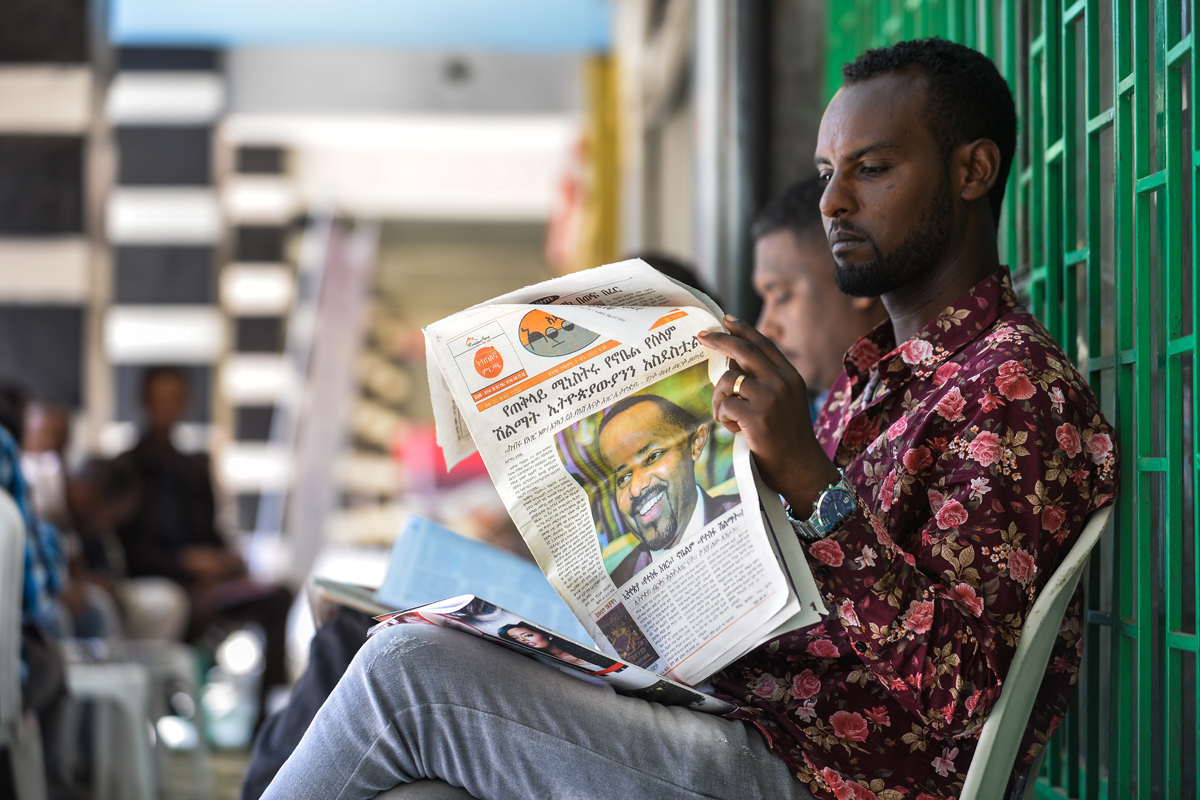Ex-US First Lady Rosalynn Carter dies at 96
Former US First Lady Rosalynn Carter, who was also a champion of mental health, caregiving and women’s rights, passed away at her home in Plains, Georgia, at the age of 96.
Barack Obama was honoured before he had a chance to do anything significant.

A man reads the last edition of a local newspaper in Addis Ababa on October 12, 2019, with the news of Ethiopian Prime Minister Abiy Ahmed's award of The Nobel Peace Prize the previous day. Ethiopian Prime Minister Abiy Ahmed was urged to press on with reforms and efforts to heal bitter tensions with neighbour Eritrea after he won the Nobel Peace Prize on October 11, 2019. Abiy, hailed by the Nobel Committee "for his efforts to achieve peace and international cooperation", sparked a historic rapprochement with longtime foe Eritrea soon after coming to power last year. (Michael TEWELDE / AFP)
In a world roiled by convulsions and killings, Friday’s award of the Nobel Peace Prize to the Ethiopian Prime Minister, Abiy Ahmed, emits a profound signal to Africa and the world. His exceptional essay towards peace with neighbouring Eritrea has eventually been acknowledged by the Nobel committee in Stockholm. Barely 18 months in office and little known before that, the Ethiopian Prime Minister will be expected to sustain his peace efforts. The award is primarily to recognise his work to secure peace and international cooperation, and most importantly the deal he signed with Eritrea last summer.
The historic agreement has ended a nearly 20-year military stalemate following a long border war. The domestic changes he has effected in a highly repressive country are equally impressive. Half his cabinet is female, as is the Chief Justice. The head of the election board is a former exiled dissident. The ban on opposition parties has been lifted, thousands of political prisoners have been freed, and senior officials arrested for corruption and human rights abuses. Such measures were in themselves remarkable not the least because he was appointed by the autocratic Ethiopian People’s Revolutionary Democratic Front.
His remarkable record, however brief, has turned scepticism about his promises into what they call “Abiymania”. Such rapid and radical change, however, has come at a cost. The sweeping reforms have inevitably made enemies as well as inspired support; in June, the Prime Minister said that the government had seen off a coup. His dismantling of complex institutions has had some unforeseen repercussions. The overhaul and reining in of a brutal security apparatus largely accounts for the upsurge in ethnic conflicts around the country. And the changes have yet to be institutionalised.
Advertisement
While he has promised free and fair elections next year, there is concern over the fact that the country lacks a clear roadmap. Supporters hope that the Nobel peace prize will give Abiy Ahmed leverage at home to buttress more sweeping reforms. He will have to countenance substantive issues in Ethiopia, and peace with Eritrea has been one of them. The Nobel prize committee has recognised the hope that Abiy Ahmed has brought to Africa. He will now have to live up to expectations in a country where progress remains precarious. The list of Nobel peace prize winners encompasses the good, the great, and the curious.
Barack Obama was honoured before he had a chance to do anything significant. Henry Kissinger was given the prize when he had already done far too much; the award, said one observer, made political satire obsolete. Aung San Suu Kyi was recognised in 1991, as a dissident who had long campaigned for democracy and freedom. Yet as head of Myanmar’s government, she has no power over the military. Most particularly, her silence over the mass killings of Rohingya Muslims had provoked demands for her prize to be revoked.
Advertisement